Kershaw Leek Buying Guide 2025: Top Alternatives Compared
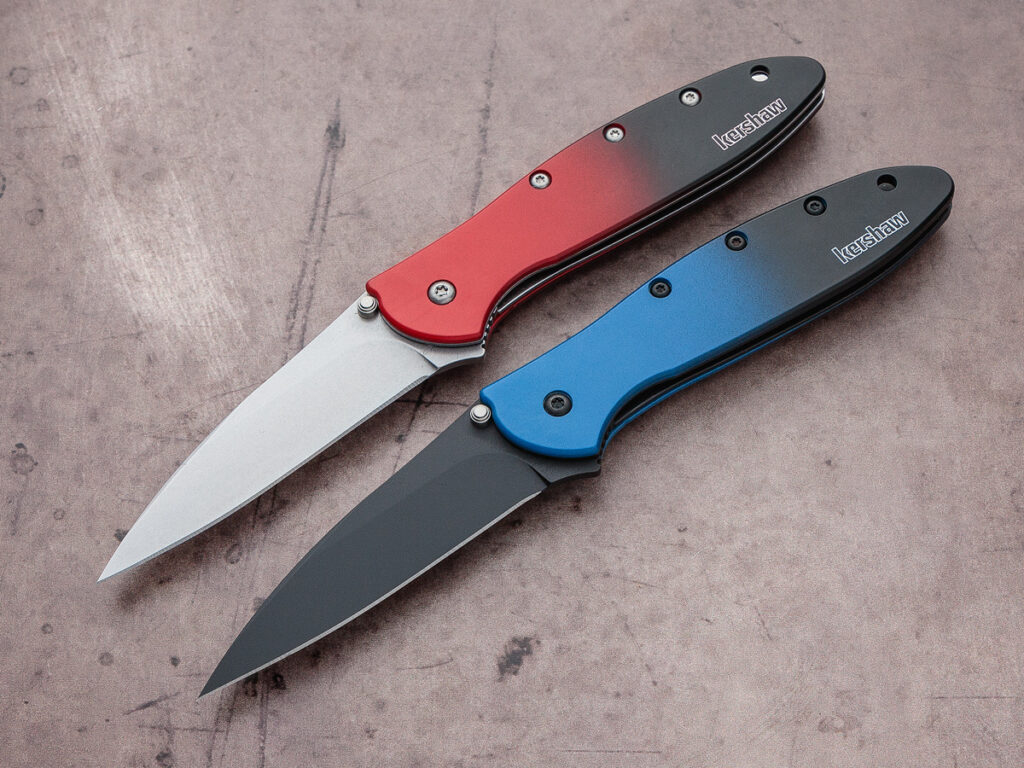
The Kershaw Leek has been a mainstay in the pockets of knife lovers and everyday users for over 20 years. Introduced in 2000 and designed by Ken Onion, it quickly became one of the most recognizable and trusted EDC (Everyday Carry) knives on the market. But after all this time, is it still the best at what it does, or have other knives finally caught up?
Below, you’ll find an in-depth look at what makes the Kershaw Leek so popular, a comparison of its various versions, and how it stacks up against strong alternatives from both inside and outside the Kershaw brand.
The Enduring Appeal of the Kershaw Leek
The Kershaw Leek isn’t just a favorite among knife enthusiasts—it’s often the first real pocket knife purchased by people new to knives. Many KnifeCenter employees, even those who never considered themselves “knife people,” have started their collections with a Leek. What keeps this knife soaring in popularity decades after launch?
- History: Launched in 2000 by legendary designer Ken Onion.
- Quintessential EDC: The Leek hits that sweet spot between size, weight, and practicality that makes it ideal for daily use.
- Reputation: It goes beyond the niche, winning fans far outside collector circles.
- Made in the USA: For many, that’s a selling point.
- Value: Priced right for the features and U.S. production.
- Slim and Sleek: Easy to carry, looks good in any setting—jeans or a suit.
If you want to browse all the current options, check out the extensive Kershaw Leek Knife Series.
What Sets the Kershaw Leek Apart?
Let’s look at the technical details and features that made—and still make—the Leek so popular.
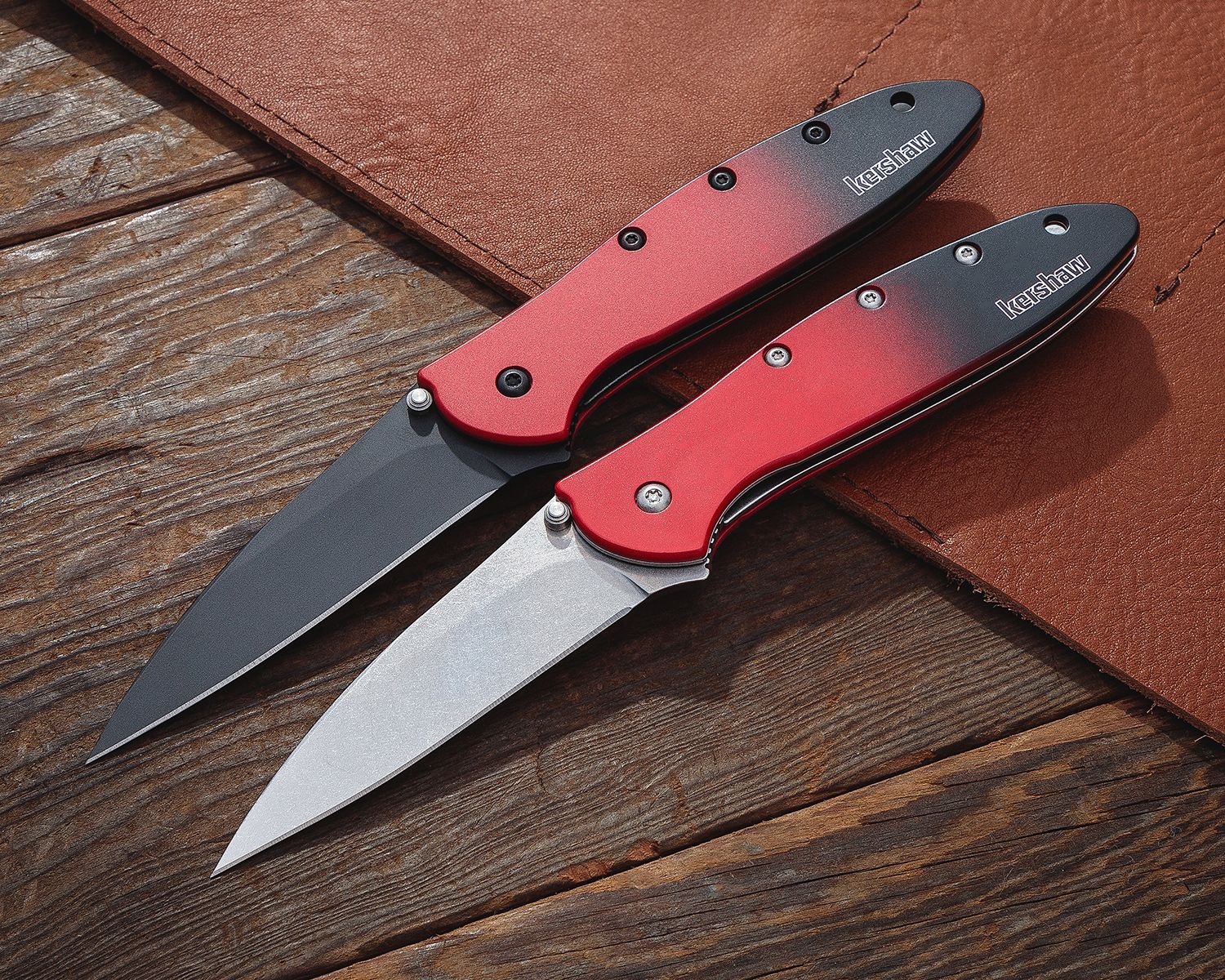
Blade and Cutting Power
- Wharncliffe Blade: The 3-inch blade shape is all about practical cutting—great for boxes, packaging, and anything needing a precise, clean slice.
- Sandvik 14C28N Steel: This stainless steel means the Leek can hold a fine edge, resists rust, and is tough for how thin it is.
- Keen Grind: Makes for an extremely slicey, thin edge ideal for day-to-day tasks.
- Needle-Sharp Tip: The fine point gives added control for detailed cuts and punctures.
Locking & Carry Options
- Frame or Liner Lock: Ensures the blade stays put during use but is easy to release when you’re ready to close it.
- Two-Position Pocket Clip: Carry it tip-up or tip-down, depending on your preference.
- Slim Profile: Disappears in the pocket, doesn’t weigh you down.
Safety and Opening Mechanism
- SpeedSafe Assisted Opening: Move the blade partway open, and a spring whips it out the rest of the way. Not an automatic knife, so it’s legal in more places (always check your local knife laws).
- Safety Slider: Blocks the blade from opening in your pocket if you want extra peace of mind.
- Fast, Consistent Action: Makes one-handed operation easy and reliable.
For a knife that looks minimal but delivers maximum utility, the Leek continues to earn its spot.
Kershaw Leek: Variations and Upgrades
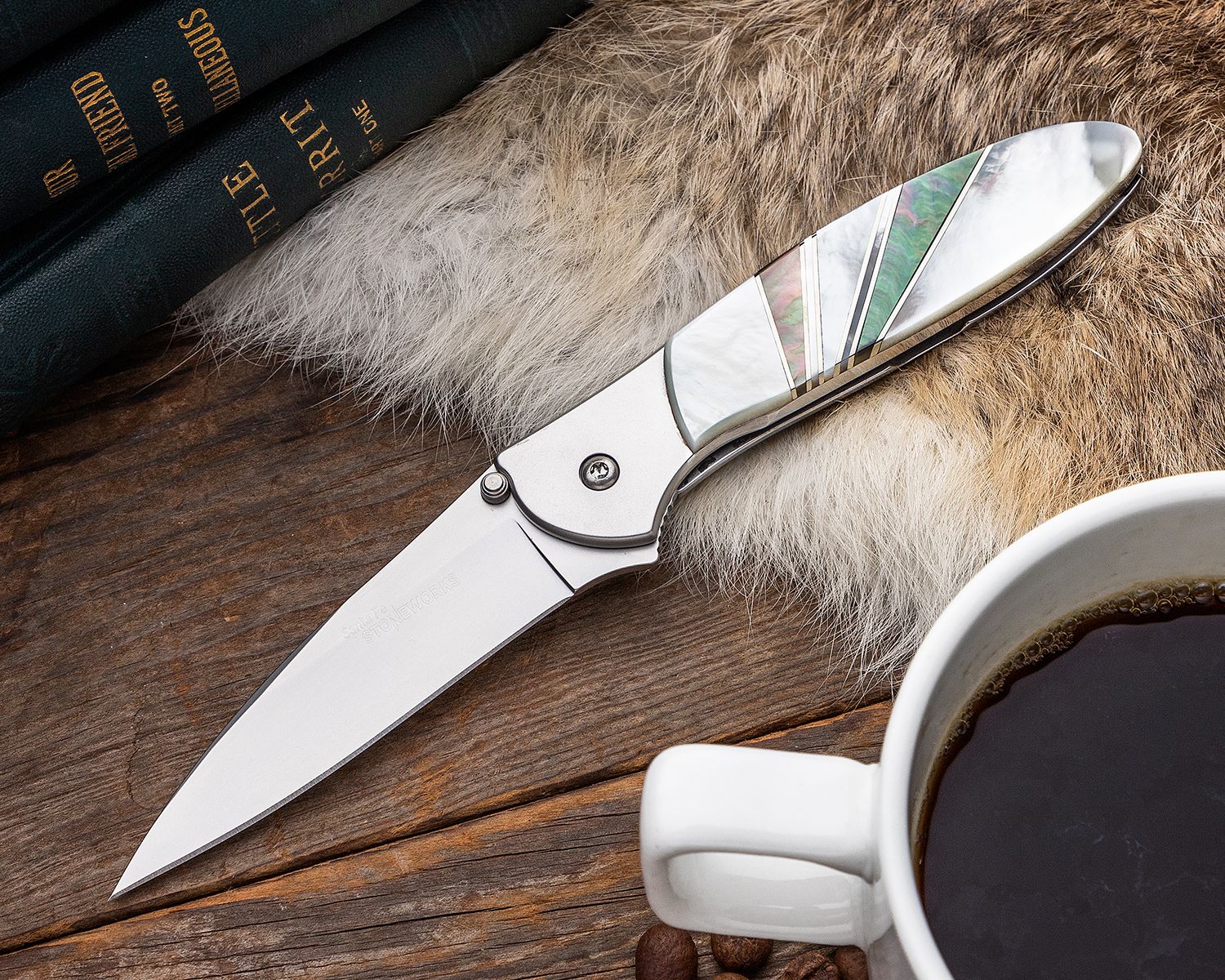
Kershaw hasn’t rested on its success. Today, the Leek lineup covers a wide range to fit any style, budget, or task. Here’s how the variations stack up:
- Standard Stainless Steel Version: Classic look, works with anything.
- Aluminum Handle Versions: Want color? Options including orange and green bring some fun. These versions use a liner lock instead of a frame lock.
- Composite Blade Version: Uses two types of steel (CPM D2 on the edge, a tougher steel on the spine)—like a puzzle, making it even more interesting for steel fans.
- Flat Grind vs. Hollow Grind: Standard models have a hollow grind for ultimate slicing performance, but upgraded versions that use premium steels like MagnaCut use a flat grind for more durability.
- Locking Mechanism: Frame lock on the stainless steel models, liner lock on the aluminum versions.
Price Range: The base Leek starts around $75, making it a fantastic value for an American-made folding knife.
Why Compare? The Leek’s Competition, Old and New
The Kershaw Leek has had plenty of time to secure its EDC legacy. Today’s most popular knives face aggressive competition quickly, but the Leek launched before today’s fast cycle of imitators and alternatives. That means some of its closest competitors have come from Kershaw itself, while others have arrived from brands trying to capture that “just right” mix of size, shape, and practicality that made the original Leek such a hit.
Let’s dig into Kershaw’s own alternatives before checking out what other brands are bringing to the table.
Kershaw: Alternatives from Within
Kershaw Dividend
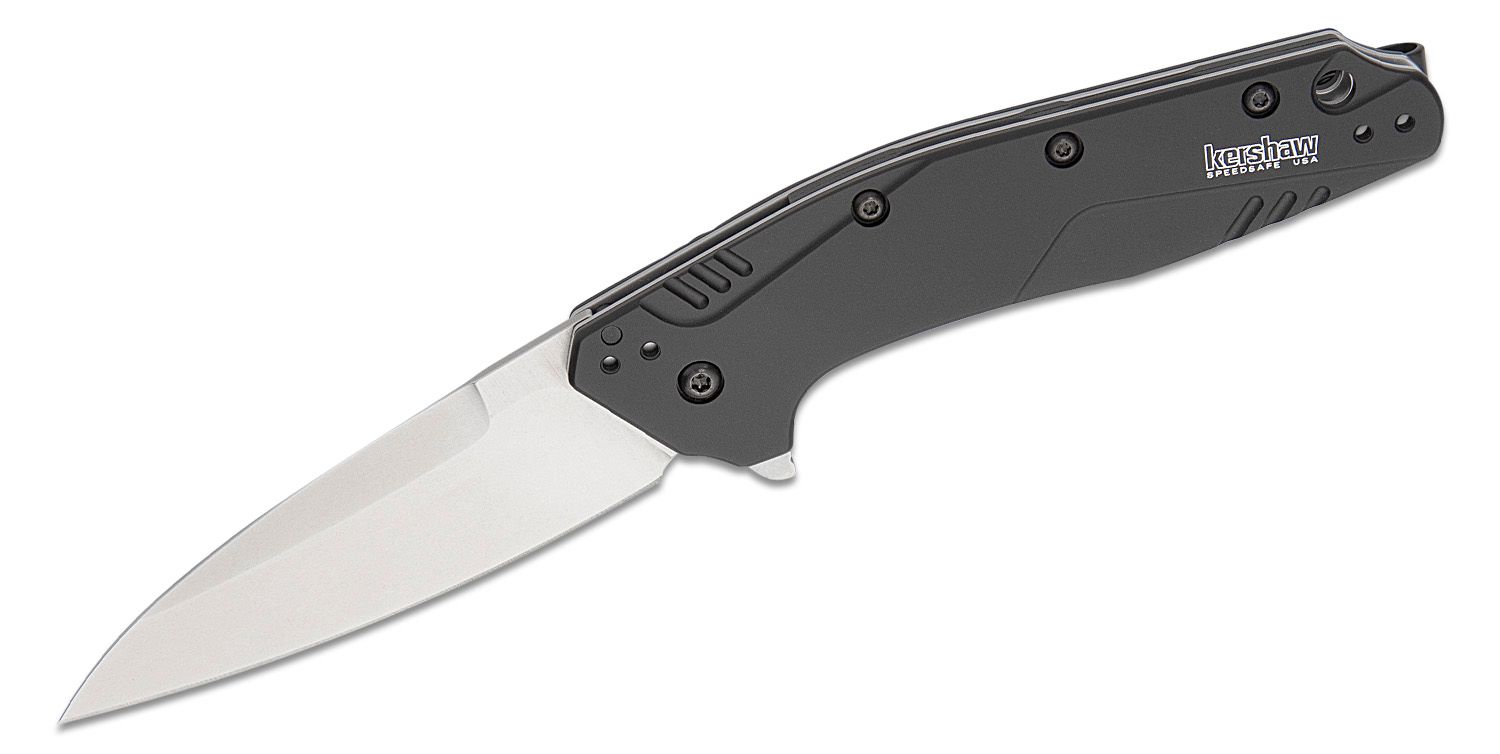
The Kershaw Dividend stands out as the closest in-house competitor to the Leek, taking the core EDC formula and adding a modern touch with higher-end materials. Originally more budget-friendly, current models highlight premium features, including MagnaCut steel and composite blade options. Its longer, slicier flat ground blade is paired with a slightly larger handle that’s more comfortable for bigger hands, and the elongated flipper tab acts as a finger guard for safety. The deep carry, four-position pocket clip makes it highly adaptable for any style of carry, while SpeedSafe assisted opening ensures rapid, consistent action. Despite the more tactical look, the Dividend retains everyday friendliness and elevates the Leek’s practical versatility by offering both more robust construction and a broader range of carry options. For those wanting the Leek’s utility but craving premium touches, the Dividend is a compelling step up within the same family.
- Premium Steel Choices: Available in MagnaCut, Damascus, or a composite N690/CPM-D2 blade.
- SpeedSafe Assisted Opening: Same smooth, fast action as the Leek.
- Liner Lock: Secure and easy to operate.
- Tactical Lean: Slightly more aggressive in look, with a larger flipper tab for finger safety.
- Pocket Clip: Four-position, deep carry for those who want the knife to hide even deeper in-pocket.
Compared to the Leek: The Dividend’s blade is a touch longer and slicier (thanks to a higher flat grind), feels a little bigger in hand, and the pocket clip offers more versatility.
Budget Alternatives from Other Brands
There are also plenty of great alternatives for those looking outside the Kershaw brand or seeking something slightly different.
CRKT Delineation
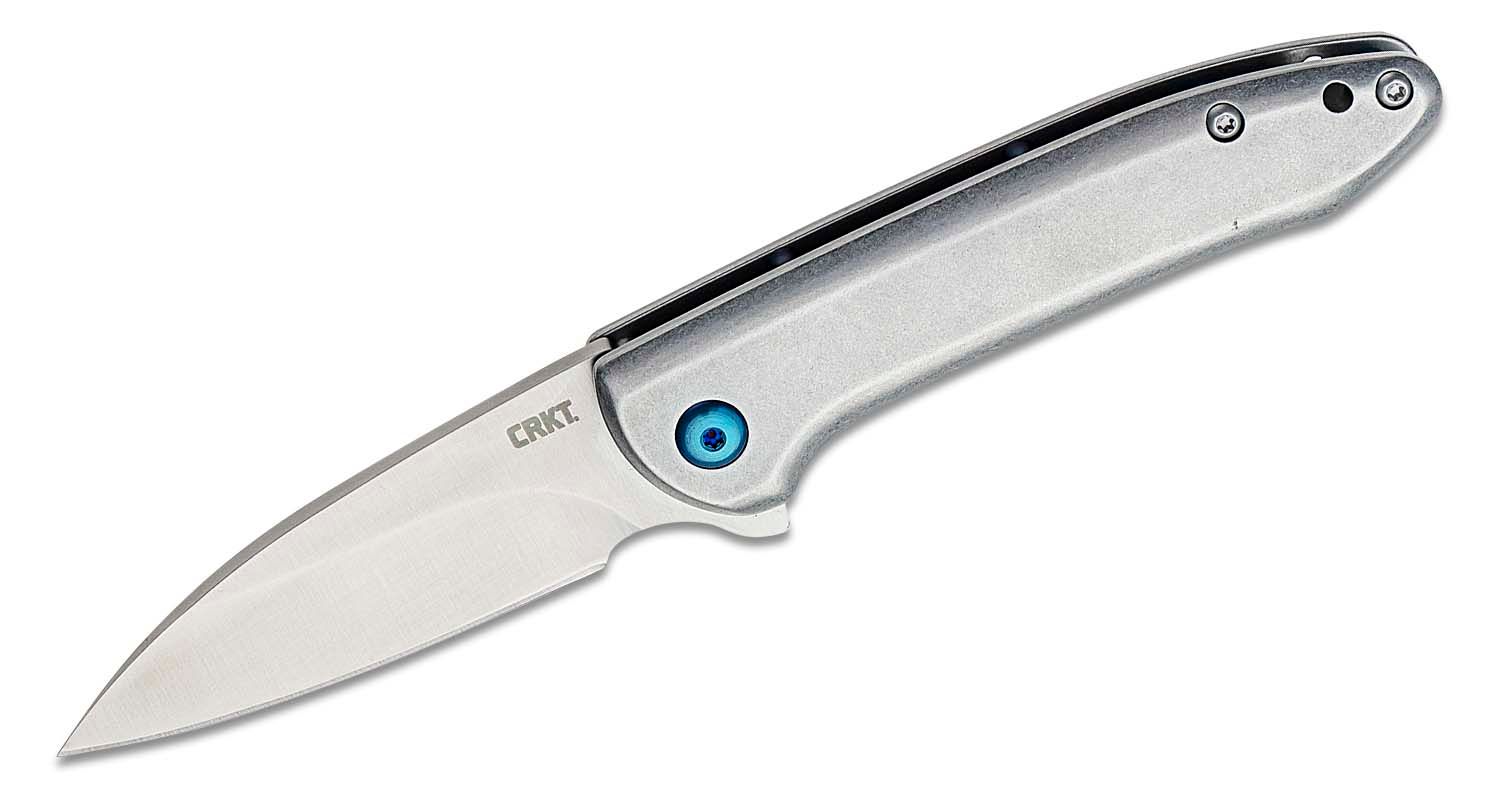
The CRKT Delineation is a great alternative for those who like the Leek’s style but want a beefier feel in hand and a bit more weight. Designed by Eric Ochs, it has a similar EDC-friendly 3-inch, hollow ground blade—though with thicker stock and a slightly chunkier handle, making it more reassuring for heavy-duty tasks. The stonewashed stainless handles resist pocket wear better than the bead blast finish on the Leek, which is ideal if you’re rough on your gear. Its frame lock and assisted opening give you the same fast action as the Leek, and the deep carry pocket clip is milled into the handle with flush screws, ensuring snag-free pocket draws. If you want a $40 knife that prioritizes both comfort and durability while keeping the Leek’s quick-action vibe, the Delineation hits that mark.
- Blade: 3-inch modified wharncliffe, hollow grind
- Handles: Stainless steel, stonewashed to better hide pocket wear
- Lock: Frame lock
- Opening: Torsion bar assisted (similar feel to SpeedSafe)
- Clip: Deep carry, single position, flush screws for snag-free draw
- Feel: Beefier in hand, thicker blade and handle than the Leek
Check out the CRKT Delineation for a durable, pocket-friendly option.
Stepping Up: Mid to Premium Alternatives
For those wanting more advanced materials and craftsmanship, these knives bring extra detail, pride of ownership, and unique opening styles.
Gerber Fastball
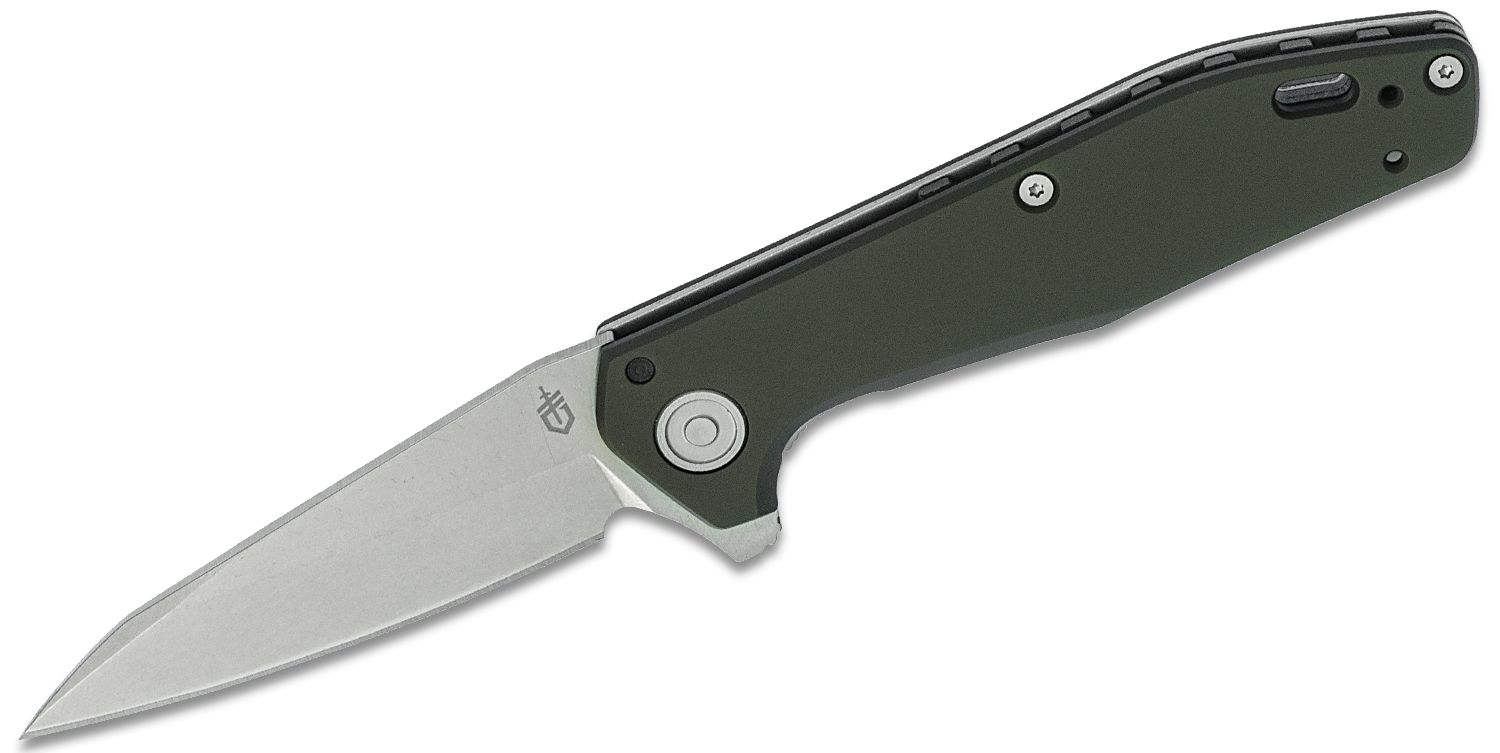
The Gerber Fastball targets those who want the performance of an American-made EDC without the assisted opening. With particle-metallurgy steel and an aluminum handle, this knife hits the premium category for materials, giving you high-end edge retention and corrosion resistance. The ball-bearing pivot offers a satisfyingly smooth, unassisted flipper action that is precise and reliable. The slightly larger and girthier handle profile fits securely in-hand, and the three-position clip means you can tailor your carry perfectly. The Fastball comes in near the upgraded Leek in terms of price, but many users willing to spend that much money on a knife will appreciate the Fastball’s crisp manual action and the quality feel of its build. It’s a direct answer to those who like the Leek but want something with a bit more “snap” and a totally manual experience.
- Blade: S30V, 20CV, or MagnaCut steel, similar blade shape to the Leek
- Handle: Aluminum, liner lock
- Opening: Ball bearings in the pivot (super smooth, not assisted)
- Clip: Three positions for versatile carry
Boker LRF
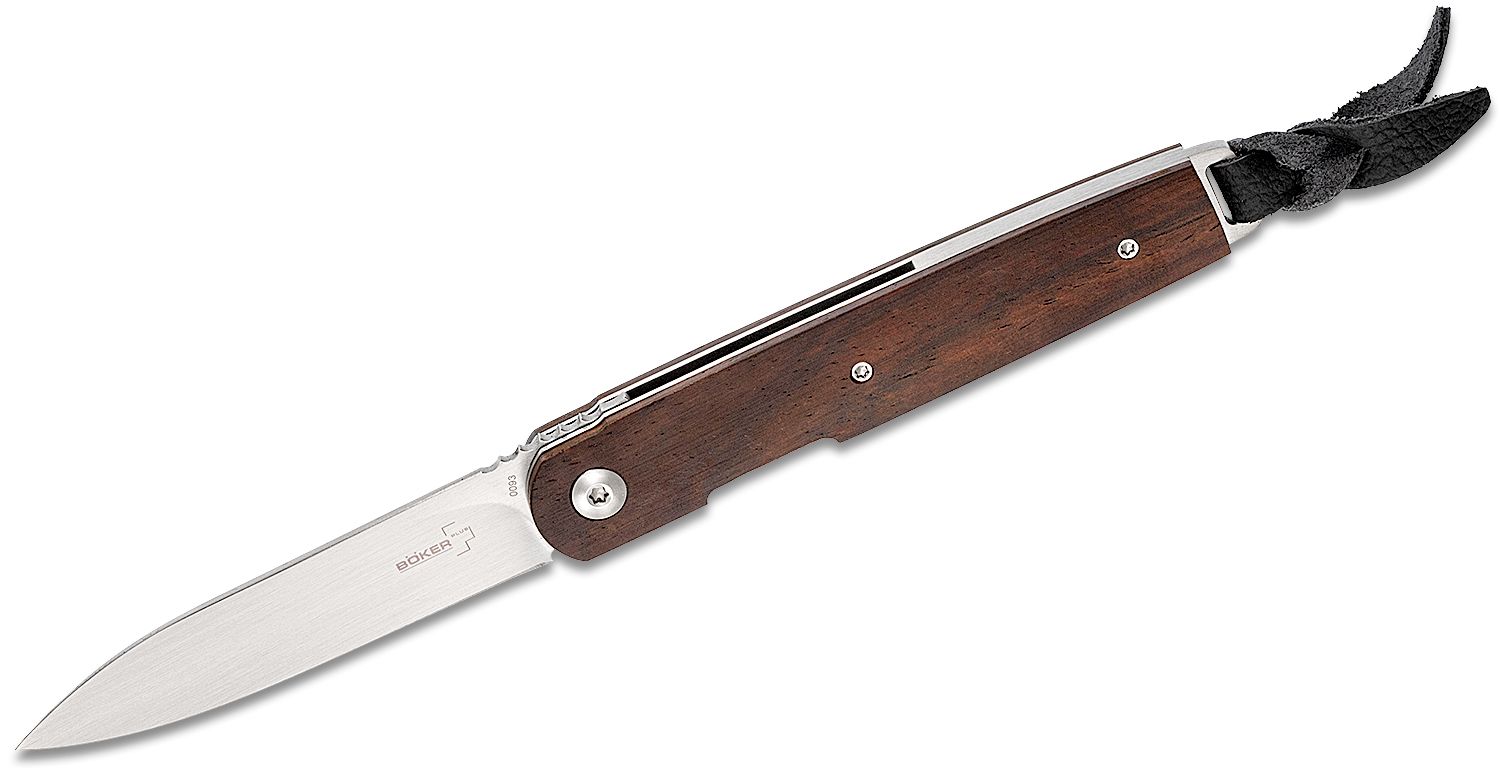
The Boker LRF, designed by Kansei Matsuno, brings a dressier, “gentleman’s knife” angle to the table, with a thin and hollow-ground spearpoint blade that’s as sharp and precise as the Wharncliffe blade of the Leek. Titanium, wood, carbon fiber, or G10 handles and VG10 or Damascus steels make it stand out as a premium option that’s still pocket friendly and easy to carry. This knife uses a smooth ball-bearing flipper system and, though the shape is less aggressive, the blade geometry delivers superb slicing and detail work. The LRF may not look like an obvious Leek competitor on paper, but in hand, it’s just as ready for both the office and the outdoors. Its refined build makes it ideal for those who want substance and style in one discreet package.
- Blade: Spearpoint, full height hollow grind, very thin
- Features: Titanium handles, ball bearing pivot, dual flipper options (front and index finger)
- Feel: More of a “gentleman’s knife,” thin blade and smooth action
ArtisanCutlery Small Archaeo
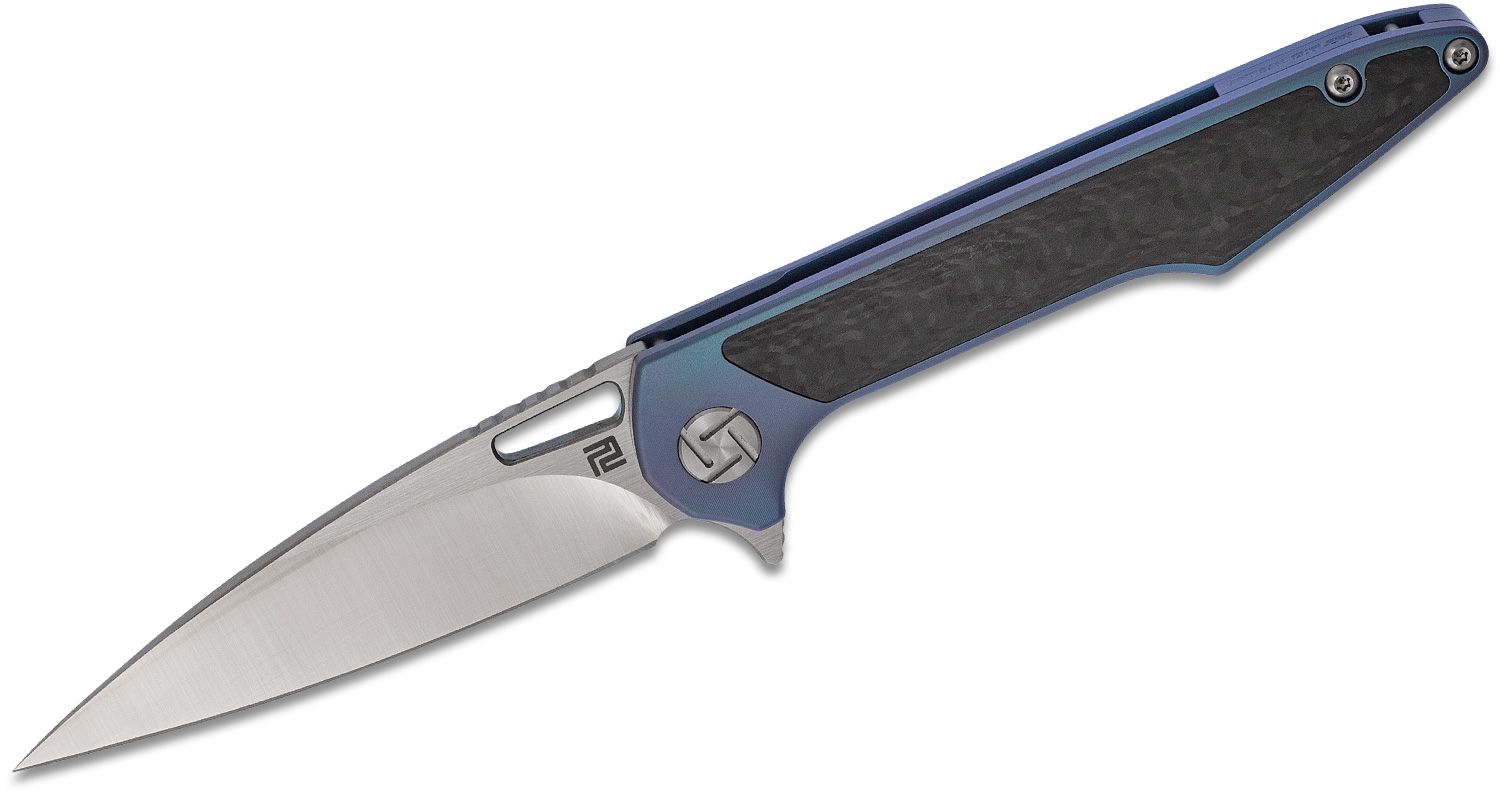
The ArtisanCutlery Small Archaeo offers a refined, high-tech alternative for those seeking the next step up in both versatility and materials. With a range starting around $50 for D2 steel and G10, all the way up to around $250 for titanium and M390, the Archaeo is available in options for nearly every budget. The non-locking detent version even gives users the option for completely ambidextrous, legal-friendly carry as well. The Archaeo’s flipper action is powered by ball bearings, resulting in a crisp deployment, and the thumb cutout allows for even more opening methods. Its handle is surprisingly roomy, with gentle contouring for all-day comfort. If you want the Leek’s usability but crave high-end luxury or legal flexibility, the Archaeo creates new possibilities for EDC fans.
- Lock: Frame lock, option for non-locking detent version (KnifeCenter exclusive)
- Opening: Ball bearing pivot, separate thumb cutout for deliberate open
- Grip: Roomy, comfortable, refined feel in hand
Pro-Tech Malibu
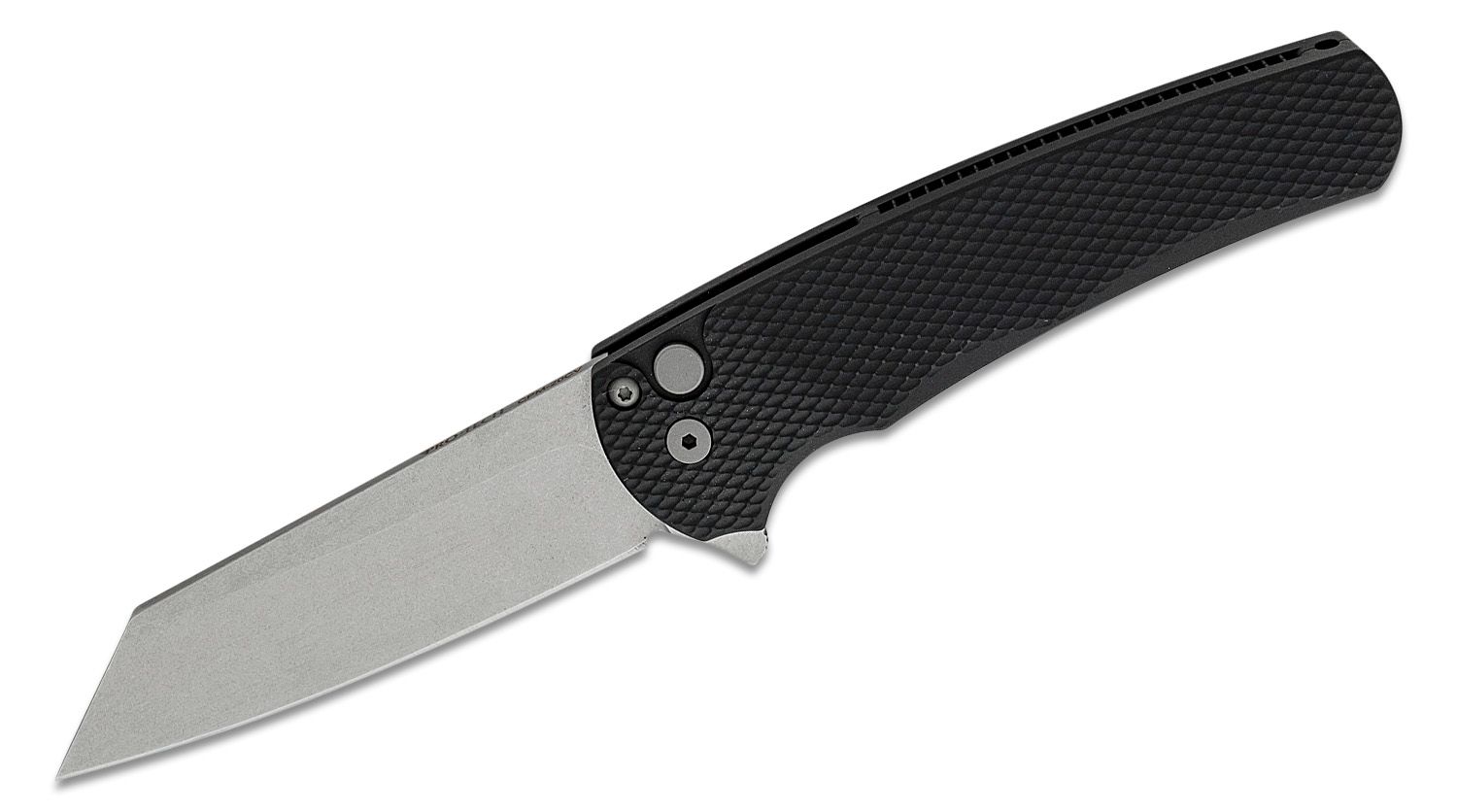
The Pro-Tech Malibu is widely viewed as the gold standard for high-end American flippers, and its Wharncliffe variant competes directly with the best Leek upgrades. With 20CV or MagnaCut steel as standard and aluminum handles, the Malibu is larger and more substantial; it’s just as comfortable at home, in the workshop, or in a suit pocket. The button lock is not only easy to use but also offers extra safety and a super-slick opening thanks to ball bearings in the pivot. The deep carry pocket clip, flush-mounted to the handle, hides the knife cleanly and securely. While considerably more expensive than the average Leek, the Malibu is for those who want the ultimate in smooth action, cutting performance, and pride of ownership. For many, once you carry a Malibu, few other flippers compare—even a legend like the Leek.
- Blade: 20CV steel, wharncliffe shape, slightly larger than Leek
- Handle: Aluminum, button lock
- Opening: Ball bearings, deep carry clip with flush screws
- Feel: Substantial, premium, and just as satisfying as the Leek—if not more
Wrapping Up: Is the Kershaw Leek Still the EDC Icon?
The Kershaw Leek is still a top pick for a reason. With over 20 years of real-world success, it checks every box for an EDC knife—especially if you want an American-made tool that’s slim, stylish, and always ready. Its long list of variations means there’s one for every taste and use.
That said, competition is strong! From in-house upgrades from Kershaw like the Dividend, to affordable alternatives like the CRKT Delineation, to premium contenders such as the Gerber Fastball and Pro-Tech Malibu, there’s an option here for every pocket and priority.
If you’re still deciding, have a look at the full Kershaw Leek Knife Series or explore the latest Kershaw Knives Collection. For anyone after a practical, stylish, and trusted pocket knife, the Leek still deserves a spot at the top of your list.
Whether you stick with the classic or branch out, you’ll be ready for anything your day throws at you. Happy carrying!